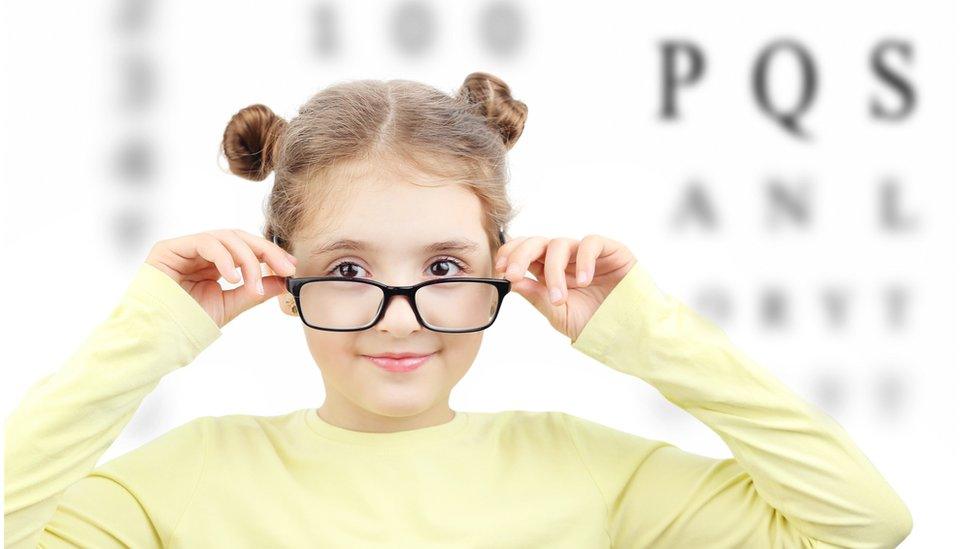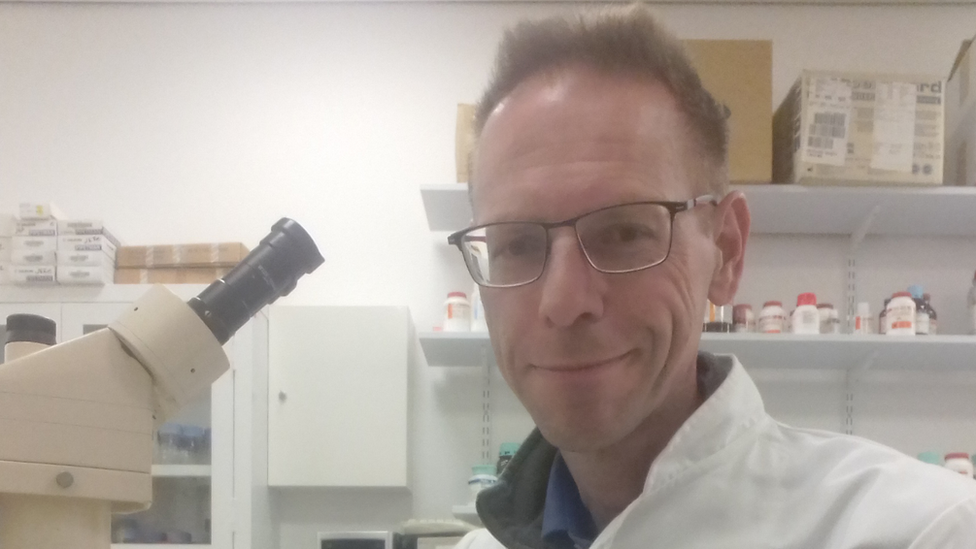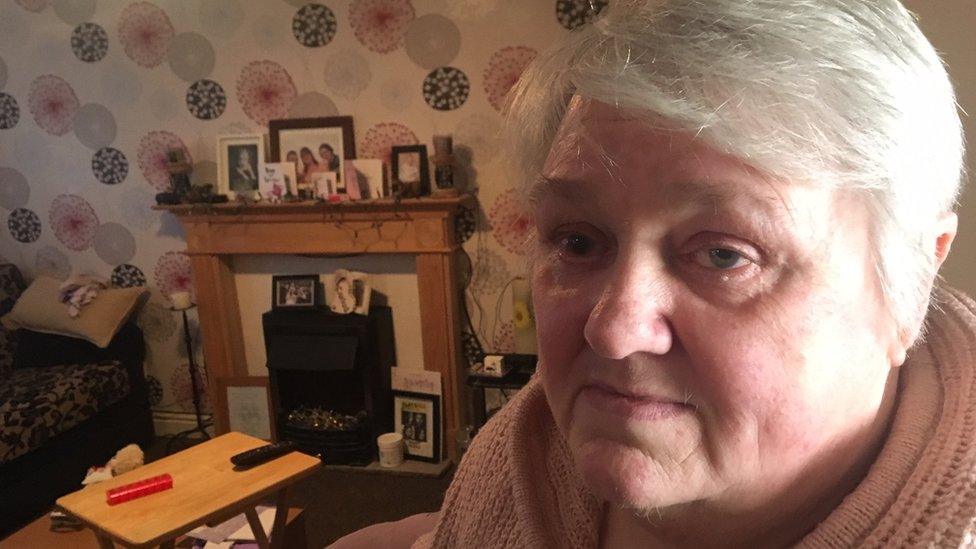Short-sightedness: Genetic test could help at-risk children
- Published

One in 10 people are genetically pre-disposed to severe short-sightedness
A test that could help identify children at risk of developing severe short-sightedness has been devised by researchers.
It usually develops during childhood and is thought to affect up to one in three people in the UK.
But one in 10 people are genetically pre-disposed to severe short-sightedness, although not all of these will necessarily develop the condition.
Current treatments cannot prevent it but can slow progression.
The researchers from Cardiff and Bristol Universities said the latest findings, external could be the first step towards a genetic test for severe short-sightedness, but further work would be needed to make this a reality.
Short-sightedness, also known as myopia, is easily detected with an eye test and can be corrected with glasses or contact lenses.
But it also increases the risk of eye disorders, such as glaucoma, cataracts and degeneration of the retina.
The only treatments licensed in the UK for use in slowing the progression of short-sightedness are purpose-designed contact lenses. There are also ongoing trials of an eye drop treatment.

Cardiff University's Professor Jeremy Guggenheim co-led the study
Cathy Williams, a paediatric ophthalmologist from Bristol Medical School who co-led the study, said: "A genetic test can be carried out at any age, so a test like this - for a high risk of myopia - could give children who are likely to become very short-sighted a head start if carried out when they are young and if there are effective suitable treatments."
Prof Jeremy Guggenheim, from Cardiff University's School of Optometry and Vision Sciences, said: "Knowing a child is at high risk would help parents and clinicians decide if treatment should be started."
The research was carried out using data from the UK Biobank, a study into the health and wellbeing of 500,000 people, and a separate large-scale study of children.
Previously, the Cardiff and Bristol team has shown that every year of education increases the risk of developing short-sightedness.
- Published27 August 2019

- Published18 February 2019
- Published11 June 2019
